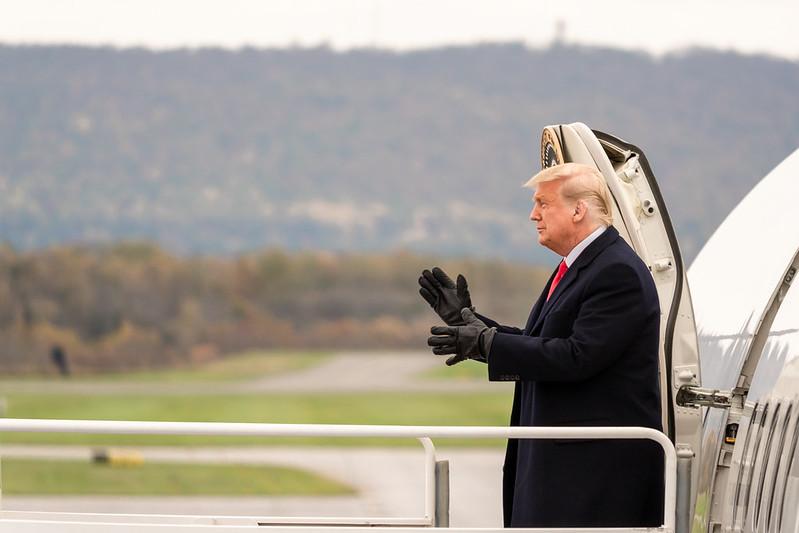
Planet A
The election of Joe Biden to the White House is widely expected to boost global efforts to combat climate change. Biden’s team has pledged to immediately reverse President Donald Trump’s withdrawal from the Paris Agreement, and to set the US on a concrete path to carbon neutrality by 2050. According to Climate Action Tracker, these steps could reduce global warming by around 0.1°C, which would be a boost to the global effort to limit warming to 1.5°C.
The climate policies of the incoming Biden administration are also likely to have implications for Australia. Experts suggest that Biden will pressure Australia to set and meet more ambitious climate goals. Unless the Australian government can match the vigour of America’s new environmental plan, it risks becoming increasingly isolated as countries in Asia, North America and Europe strengthen their commitments to carbon neutrality and implement stricter environmental targets.
Democracy watch
This week in Thailand, pro-democracy protesters pushed through police water cannon in front of the Grand Palace in Bangkok in an attempt to deliver letters that addressed the public’s grievances surrounding King Maha Vajiralongkorn. Intensifying protests against the government this year have been coupled with increasing calls to reform the royal establishment. Exiled activist Pavin Chachavalpongpun said that the government and the royal palace have been ‘building up vigilante groups, supporting hardcore royalists … [and] using both propaganda and violence to intimidate the pro-democracy movement’.
Despite strict laws that prevent citizens from criticising the monarchy, a large group of Thai protesters has proposed 10 changes to make the monarchy accountable, while others have called for a more controversial move towards becoming a republic. In an unprecedented statement to foreign media, the king said, ‘Thailand is the land of compromise.’ However, it’s unclear if the monarchy will agree to relinquish any of its significant political, financial and military influence.
Information operations
Misinformation and disinformation about voter fraud, the counting process and ‘stolen ballots’ have been proliferating across multiple social media platforms since last week’s US election. Both Facebook and Twitter were quick to label misleading claims, including a tweet by US President Donald Trump claiming electoral fraud. Facebook also removed a group named ‘Stop the Steal’ with more than 365,000 members after calls for violence were posted on its page. Smaller sites such as Pinterest and LinkedIn have fewer resources to combat misinformation but demonstrated more flexibility in removing similar posts.
There has been no evidence of direct foreign interference in the election, but the FBI is investigating a sophisticated campaign involving millions of automated spam calls and texts telling Americans to ‘stay safe and stay home’ before the poll. Much of the disinformation can be traced back to the Trump administration, including Trump’s false claim of victory and attempts to stop the vote count.
Follow the money
Last week speculation emerged among Australian exporters that the Chinese government would implement new bans on the import of Australian goods, including sugar, barley, wine, timber, coal, lobster and copper. Chinese state media reported that these measures would take effect on 6 November, but they are yet to eventuate and have been dismissed as ‘rumours’ by China’s commerce ministry.
In response to the potential new bans, as well as the punitive trade measures imposed by the Chinese government earlier this year on Australian barley, wine and beef, the Australian government has called on Beijing to play by established multilateral trade rules.
Australian exporters have also been advised by the government to ‘seek new export markets’. While diversification will be difficult given the proportion of Australian exports that go to China, analysts have emphasised that Australia’s boom in exports to China is a relatively new phenomenon and that Australian exporters can remain ‘competitive and profitable’ without the China market.
Terror byte
In a joint statement last week, the German and French interior ministers highlighted the need for EU member states to work more closely on counterterrorism following recent attacks in France and Austria. Increased cooperation would involve a greater exchange of information and coordination between authorities across borders. An EU official has also suggested the creation of a European training institute for imams to ‘fight the ideology of hatred’.
Despite the renewed focus on Islamist terrorism, experts have not reached a consensus on the significance of the threat or the most effective responses. Some have argued that the jihadist threat is in decline, and controversial approaches from European politicians have raised tensions, citing those between French President Emmanuel Macron and French Muslim communities. The UK, meanwhile, has raised its terrorism threat level from ‘substantial’ to ‘severe’, prompting a greater police presence across the country. Observers have also noted a spike in populist messaging that uses the threat of terrorism to create fear and amplify ethnic divisions for political purposes.